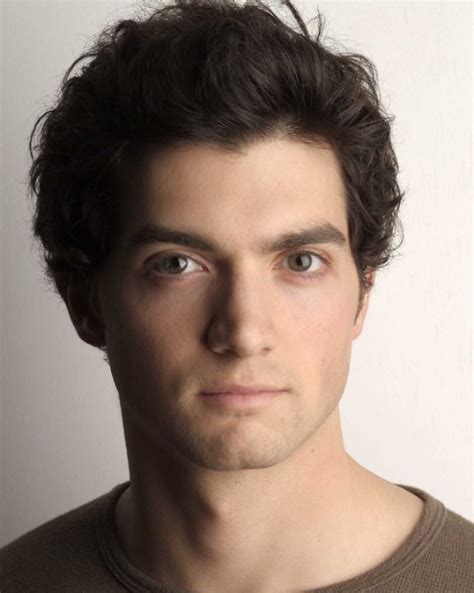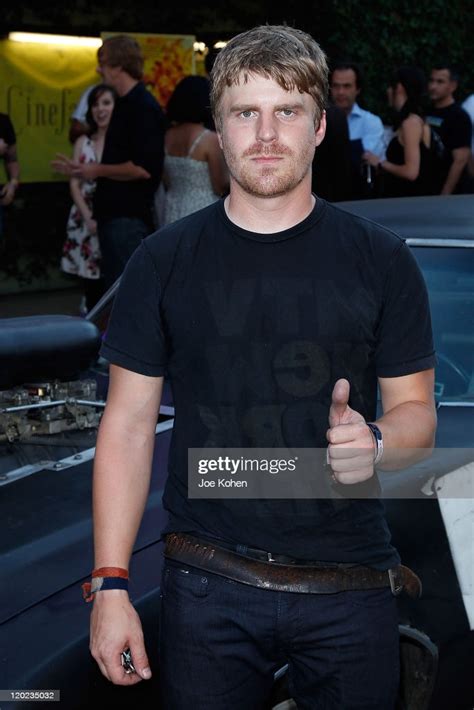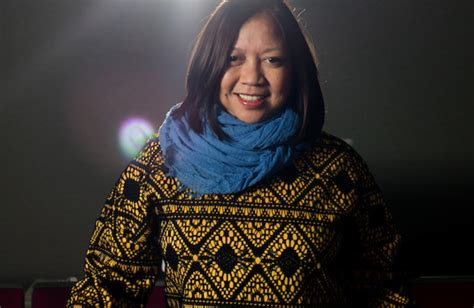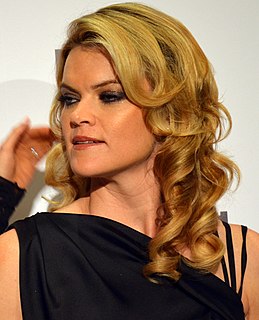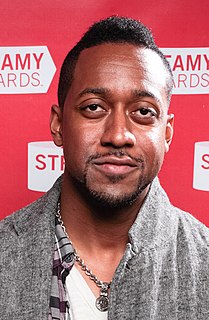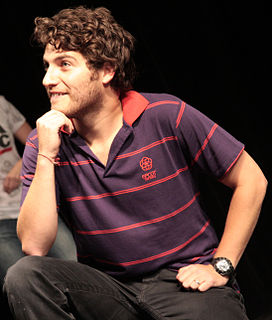A Quote by David Alpay
I've just written this six-part sketch comedy series, which I've never done before. And I don't know how to pitch it. Am I supposed to just pick up a camera and put stuff on YouTube? Is that how it works?
Related Quotes
Every time I do a play, it's as if I've never done one before. I'm always confused. I always am convinced I'm going to be fired. I'm like, 'I don't remember how to act. I don't know how to do this.' And, it's just a very slow process, and then, all of a sudden, it's just there one day. I still don't understand how it happens.
3D needs a trained eye. It can't be done by everybody. People who just do 3D just for the sake of commercializing their movie another five or six percent and they don't know really how to do it, they should care how to do it better by bringing other directors and collaborators into their lives to help teach and instruct how you really make a 3D movie because it's not just like putting a new lens on a camera and forgetting it. It takes a lot of very careful consideration. It will change your approach to where you put the cameras. So, 3D isn't for everybody.
Basically, if you shoot your own stuff, you can just pick up a camera and some wireless microphones, grab a couple of LEDs, and you're off and running. And if you don't shoot your own stuff, you can just grab one other person to do camera and you can learn how to do the sound, and you're off and running.
If you don't understand how something works, never mind: just give up and say God did it. You don't know how the nerve impulse works? Good! You don't understand how memories are laid down in the brain? Excellent! Is photosynthesis a bafflingly complex process? Wonderful! Please don't go to work on the problem, just give up, and appeal to God.
I don't need to play villains or anything like that to show people that I'm different. I just want to be a part of stories that hold up over time. Too much of this stuff is forgettable. When it comes to being an actor, I don't know how good I am but I always say this, I've never been the problem in the cast. I just want to keep that streak up and do more projects in the future, that's it.
Zooming in, zooming out. I was shocked. I said, "Let's erase this right now, put the camera behind the stage and I'll do the performance just for the camera." He set up everything and I told him to go outside and smoke a cigarette. Come back when I finish. Don't touch the camera. This was the way how I've done most everything after that.
